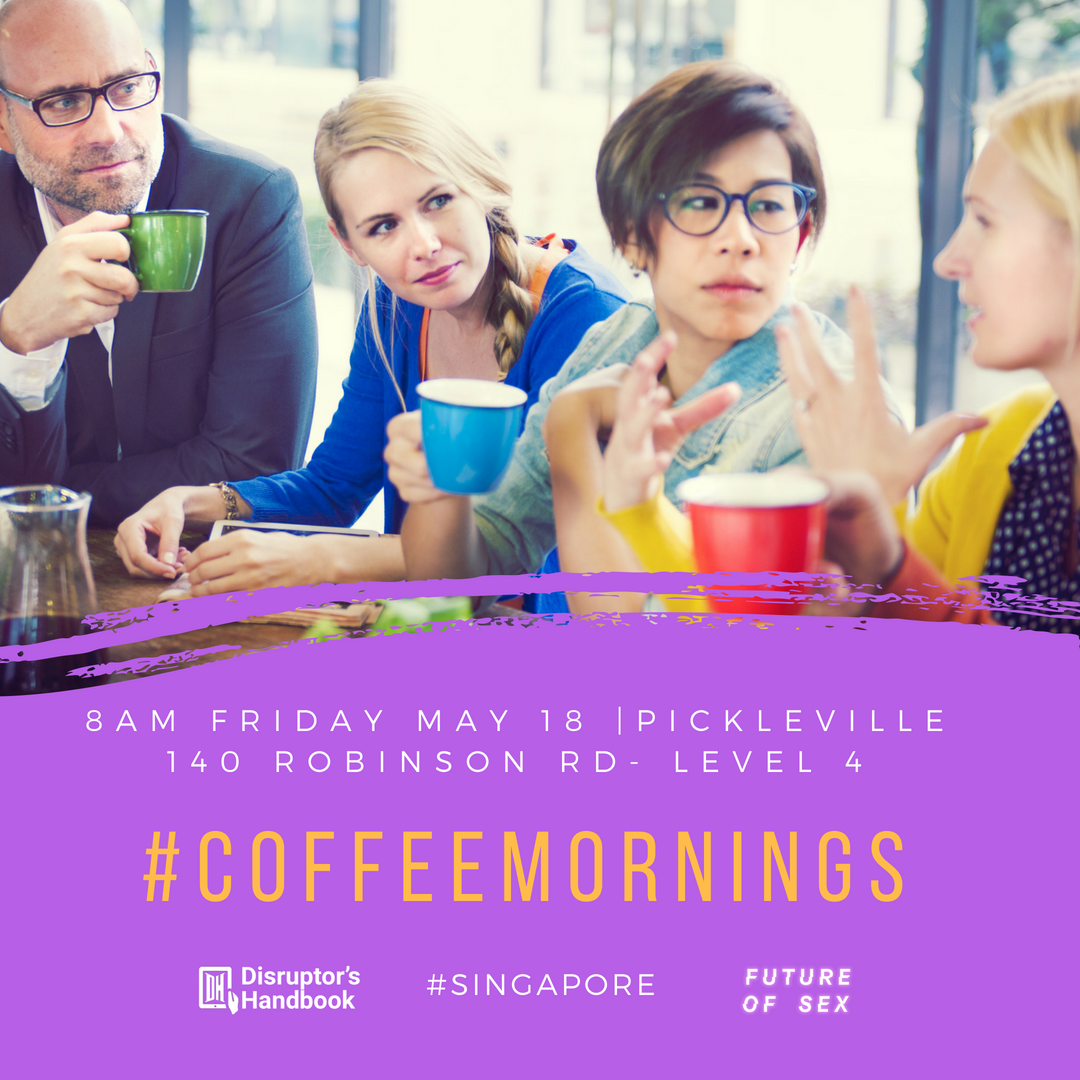“The condom was probably invented by a middle-aged man sitting in a well lit room.”
From pinpoint accurate insights, hackathons can deliver amazing products. And this was never more evident than in the recent SexTech Hackathon held in Sydney by FutureOfSex.org.
Now, the “future of sex” is likely to raise an eyebrow or two, but we know that the sex industry – especially in the category of leisure and pleasure – has long been heralded as an innovator. It’s just innovation that happens below the radar – but the truth is that emerging and disruptive technology from virtual reality and big data to cognitive computing, artificial intelligence and robotics find their first experiments in the dark ends of the web.
Now, under the banner of “SexTech” a new generation of entrepreneurs are bringing some of this innovation to light – bringing with it a renewed sense of purpose and understanding of what it means to be “human”.
At Australias’ first SexTech hackathon, the first of its kind in the southern hemisphere, the range of deep tech on display was breathtaking. Bringing together the hackers, hipsters and hustlers of the entrepreneur and startup community and combining them with the humanitarians – the sexologists, psychologists, UX, medical and academic experts – ensured that the solutions weren’t just human centred – they were deeply technical too.
So what does the Tech in SexTech actually look like?
To start with, SexTech – at least in this incarnation – was powerfully female driven. With around 100 participants, 90% of whom were women, this was a hackathon that attracted women with engineering, science, marketing, programming and design skills. Usually hackathons struggle to attract a gender diverse audience – but the design of the event, the positioning and the pre-hackathon engagement all worked to create a profoundly different experience.
The solutions, similarly, were equally diverse.
- [IOT]: Voice controlled sex technology for people with a physical disability: The winners of the hackathon, AudioVibe, developed a voice activated, hands free vibrator and internet of things (iot) platform designed specifically for people with a physical disability. Working with leading local disability designers, the team validated and prototyped the underlying technology and proof of concept in just 36 hours.
- [Machine learning]: Improving the sex life of couples with artificial intelligence: After a few years of being in a relationship, many couples experience a decline in their libido and sex life. In fact, around 50% of couples have a mismatch in their desire for sex. But what if an app could help partners easily signal interest – and receive tips, suggestions and more with the help of a virtual sexologist? The Ignite app used machine learning algorithms to identify dating and relationship best practices, sharing them through a chat bot interface. This, combined with “date night roulette” randomised tips helped couples broach the difficult subject that neither partner knew how to initiate.
- [Mobile apps]: Gamification of online dating: The team behind Love & Consent sought to bring online dating to the gamer community. With a massive audience of casual gamers spread across the world, tapping into the accepted game behaviours – levelling up, in-game rewards etc – the team sought to transform the transactional nature of Tinder into more meaningful and safe encounters than offered by a bevy of “dick pics” and poorly worded profiles.
- [Telehealth]: Connecting women with the right doctor for their sexual health needs: Dr Nikki Goldstein tackled the challenge faced by women across Australia seeking advice from sex positive physicians. Often inadequate medical advice is provided to women simply because they cannot find a doctor they feel comfortable discussing “uncomfortable issues” with. This solution combines a Tinder style profile and matching platform combined with a telehealth online conferencing solution to help ensure women anywhere can access reliable, quality medical advice.
Other solutions included optimised search engines, virtual reality and scientific condom packaging design driven by new approaches to 3D printing. But each of these required an understanding of deep tech built around very specific human moments and needs.
While in other parts of the technology world, solutions struggle to find the right way of bringing the human-computer interface together, the emerging SexTech industry seems to have found a unique way forward. And with Asia’s first SexTech Hackathon scheduled for May 2018 in Singapore, momentum is building around what is a burgeoning $30 billion market. One thing is certain – SexTech appears to be ground zero of human-technology interrelations – and every step into this emerging world is full of fascination.
